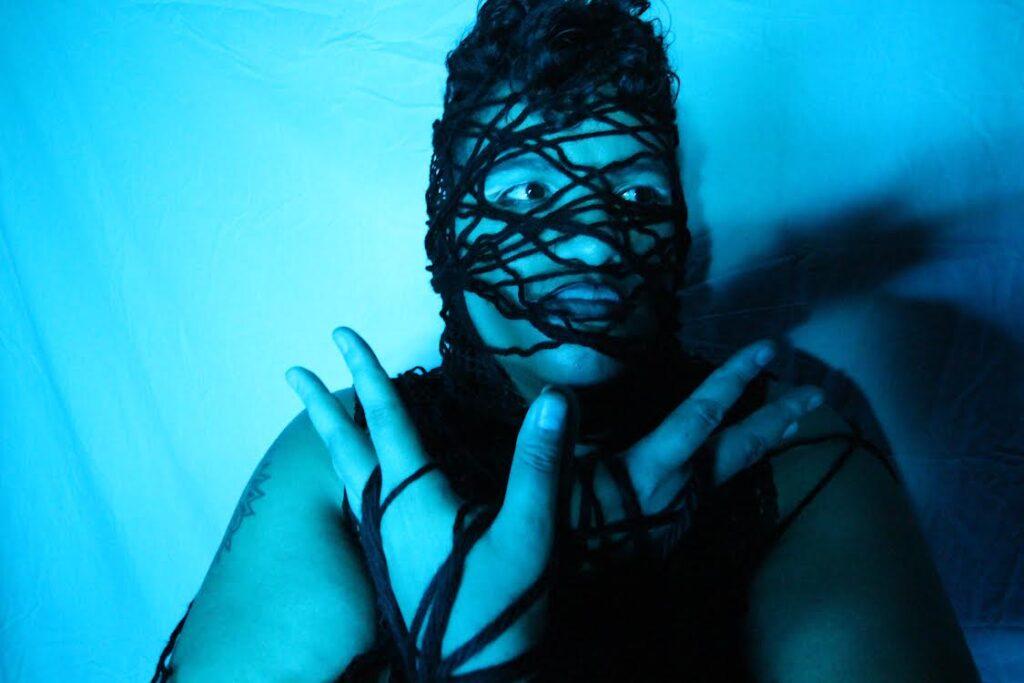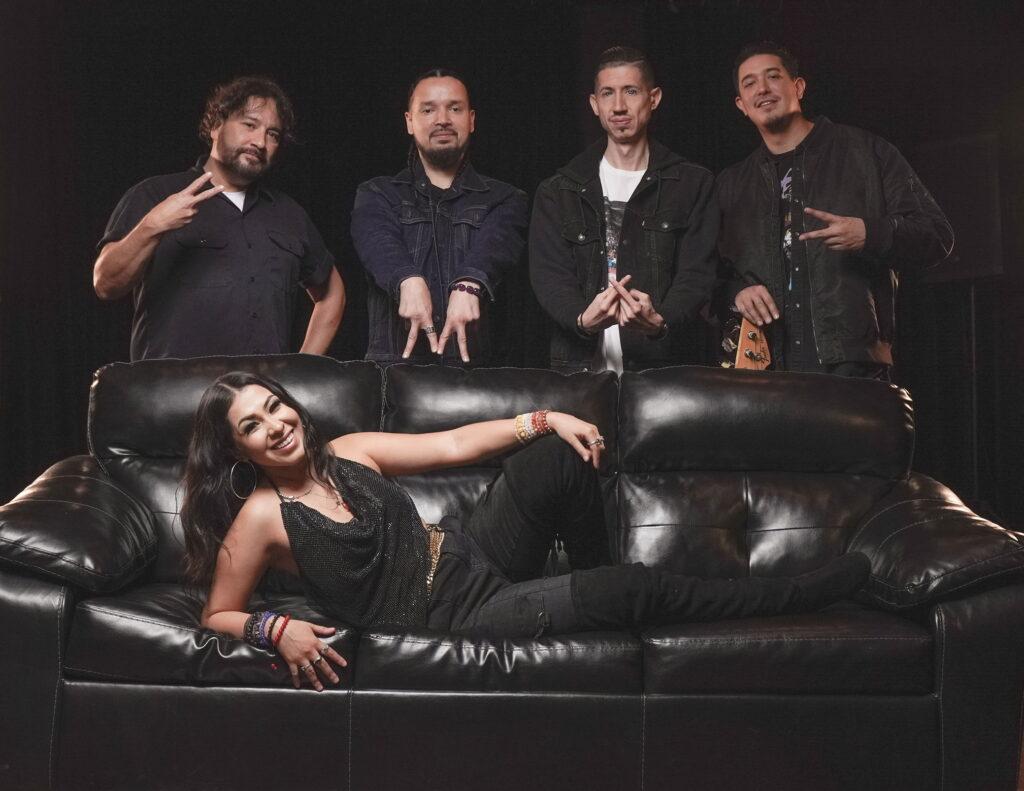From September 15 to October 15, we are celebrating Latin Heritage Month. This yearly recognition acknowledges the independence of several Central and Latin American nations from colonialism. According to the 2021 Census, 22% of Coloradans identify as Latino or Hispanic, which is the second largest racial demographic in the state. With the majority of the state's residents identifying as white, that is also reflected in the music scene. Representation should be a priority for not just Colorado's music community, but for the industry overall. So we have connected with a few of Colorado's Latin bands to talk about the importance of that representation and how non-Latin identifying people can support the Latin music community beyond Latin History Month.
Get to know Soy Celesté : From San Antonio, TX and now a Denver resident. Soy Celesté is a solo music project by Celesté Martinez, who is a Queer Chicana rocking out on occupied Ute, Chyenne and Arapaho lands also referred to as Denver, Colorado. She sees music as a multi-faceted medium of self-expression and healing. Through songwriting Celesté shares about her lived experiences and intersecting identities. Her sound is emotionally charged and experiments with a variety of styles and genres.

Demi Harvey: How did you decide to pursue a career in music?
Soy Celesté : In my early 20s, I began to more fully embrace my Queerness and this resulted in forming more friendships and community with Queer Trans People of Color (QTPOC) in Denver. At some point in 2018 a few of us decided we wanted to get together to jam and make music, and this later evolved into the feminist QTPOC collective that was TúLips. Being a part of TúLips pushed me to be more vulnerable and courageous as a musician, because in this collective we created music that was a reflection of our lives, our stories and issues we were passionate about. In the summer of 2021, I found myself navigating a sudden and temuluous divorce, so I turned to songwriting as a way to process what I was living through. I realized that the music pouring out of me was how I wanted to share my story, so in early 2022 I decided to step out on my own as a musician by developing my solo project Soy Celesté.
How does your heritage influence the music you make?
As a Chicana, I embrace the complexity of being Mestiza, both indigenous of Cherokee and Mexica lineages and being of Spanish descent, while being politically active in our Colorado community. Using various mediums of art to share stories and amplify awareness or critiques on pressing social issues is central to Chicano culture. As a musician I see myself intertwined with this aspect of my cultura as I make emotionally charged rock music. While I lived in El Salvador in 2014, I had the opportunity to teach music at El Centro Arte para la Paz in Suchitoto. Being around Salvadoran musicians exposed me to a wide variety of Latin genres. This experience changed how I listen to music, drawing my attention to fellow Latin artists who integrate a variety of musical genres that honor the roots of where we come from while simultaneously pushing the boundaries of how we experience music. Some of those who I draw inspiration from are: Lido Pimienta, Le Dame Blanche, Combo Chimbita, La Santa Cecilia, Chicano Batman and Selena. In my songwriting I attempt to interweave this kind of experimentation, so you will hear Spanglish lyrics and rhythmic patterns that are more common to Latin America in many of my songs.
Why is Latin representation crucial to the music scene?
Latinidad is vastly diverse and so is our music. We are more than a few genre types, you can find us anywhere and everywhere. Seeing an artist that looks like you on stage or hearing music that incorporates aspects of your cultura and lived experience is crucial because it is affirmational. Celebrating who you are and where you come from should be interwoven into music as a medium of self-expression. Seeing other Chicana artists is a huge part of what encourages me to participate in my local music scene, and I hope my presence inspires others to share their music with courage and pride.
Get to know 2MX2: Denver band consisting of members Lolita: She/Her, O1: He/Him, Juice: He/Him, DMDTheProducer: He/Him, Kenny O: He/Him. 2MX2 is a Latin Urban band from Denver Colorado. They're well known for their modern renditions of traditional Latin music. They make music on topics such as immigration, health, education reform, and other important matters of our times.

Demi Harvey: Why is Latin representation crucial to the music scene?
Lolita answers: Latin representation is crucial to the music scene because last I checked 1 in 6 people in the US is of Latin heritage, and about 22% of Colorado's population is of Latin heritage. There’s a wealth of beauty in the diversity of the human race and it’s beautiful to celebrate and support it.
How does your heritage influence the music you make?
O1 answers: We make music in spanglish (a mix of english and spanish) because that’s how we speak on a day to day basis. We all have a Mexican heritage and it influences our music in different ways. For juice and I we love lyricism in Spanish and when we run out of words to say we’ll switch it to English to finish out the rhyme or phrase. Then when you translate what we said in Spanish to English, it sounds even more poetic than it does in Spanish most of the time. So we choose to write our lyrics in mostly Spanish. For dmd his latin heritage influences his music when he’s creating the actual music and beats for our songs by fusing all of the latin music we show him into a hip hop, alternative rock or pop song.Me, Lolita or juice will show him music we grew up to and he uses those influences when he’s creating music for 2MX2. It’s interesting how he don’t even speak Spanish (he’s currently learning) but yet he makes the best latin infused music we’ve ever heard.
How do you think audiences can best support Latin musicians?
Juice ET Hugo answers: By attending concerts, streaming and sharing music, and buying merchandise. That's how audiences can support any musicians.
To learn more about Colorado musicians to support, check out the Local 303 program. Tune in for Especial with Host Bruce Trujillo every Wednesday night at 10pm MST. Stream our Latin Heritage Month Spotify playlist below. All month long Indie 102.3 will be highlighting Latin musicians you should have on your radar, hear these artists every single day.








